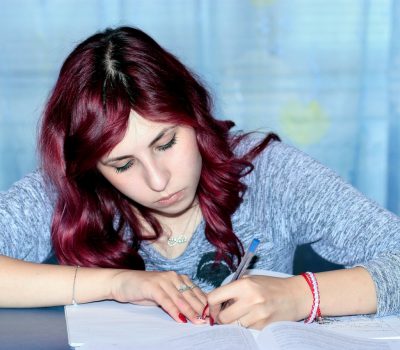

Elli Narewska from NewsWise shares how to teach children to spot ‘fake news’ and how to work out which sources are reliable and which are less reliable.

One of the things I often hear from pupils in NewsWise workshops is that you cannot trust Wikipedia: “it’s not true!” and the information you find there is “fake news!”. Children have gone from implicit trust in, to outright rejection of, the information they find there as teachers have made efforts to encourage pupils not to believe everything they read online; but they are missing the critical skills to challenge (and not simply dismiss) what they see, hear or read and make informed decisions about what they trust and believe.
Recognising the role that technology plays in our lives and how to respond to this in education becomes ever more crucial: online safety has long been a priority in schools, but current anxiety about fake news and misinformation means we need to address more than phishing scams, harmful content, trolling and simple fact-checking. The new ways in which children are accessing information are important to consider, but it is critical skills that are necessary to be able to successfully navigate the online world.
The good news is that children love becoming fake news detectives and learning how to interrogate the source of information: have you heard of them before? What do they tell you about themselves? What else have they shared? Do they seem reliable? What are other people saying about this information? Has that picture been manipulated? I have yet to meet a child (or adult for that matter) who does not enjoy a ‘fake or real’ quiz. Beyond fake news, children can tap into the same skills they use when looking at fictional texts to analyse balance, bias, rumour and speculation online.
Introducing these skills to primary-age children, before they have developed ingrained digital habits and attitudes to online information, is essential: Ofcom’s most recent report on children’s media use and attitudes shows that eight to eleven year olds increasingly have their own mobile phones, tablets and social media profiles and now spend more time online than they do watching a TV set. Of those with mobiles, 40% are allowed to take them to bed. Which is to say, young children are already accessing information online, potentially unsupervised. The means by which we all access and consume information are rapidly evolving: education must also evolve to ensure we are giving children the skills they need to properly make sense of texts of all kinds online.
Developing digital skills in school is a matter of inclusion and equality. The Lloyds Bank UK Digital Consumer Index 2019 found that people in lower income households are most likely to lack access to digital technology and, as a consequence, miss out on the associated benefits, furthering disadvantage. What’s more, the National Literacy Trust’s recent report on family news literacy showed that parents from disadvantaged backgrounds are more likely to never watch, listen to or read news with their children, and are more likely to believe their children do not have the skills they need to tell whether something is fake. There are very good reasons to encourage children to be “digital first”, but this needs to come hand in hand with the critical skills to be in control of what they are accessing, using, believing and sharing.
In terms of deeply engaging children, the quality of the content used makes a huge difference. Using a real news story works brilliantly; it’s so meaningful to allow pupils to consider the real-life consequences of how information about these events is represented. Among others, in our NewsWise lessons, we use a gorilla escape at London Zoo to look at fact and opinion, the Extinction Rebellion protests to consider the importance of balance and the Windrush scandal to explore how the media can hold power to account. Children take these issues seriously: one teacher we worked with commented “I could really see pupils developing as citizens in front of my eyes!”.
We need to approach digital literacy as we would literacy of any kind: looking at the process of how a text is created – whether written, audio, video or pictorial – not just the end result, but how you got there. You can only successfully deconstruct a text when you have learned how it has been put together in the first place; once demystified, everything becomes more accessible.
Using real-life examples and giving skills a real-world context, as we do in NewsWise resources, is one way to make this learning immersive and fun, helping to develop responsible, empowered citizens of the future.
One Reply to “Why Digital Skills are Critical”